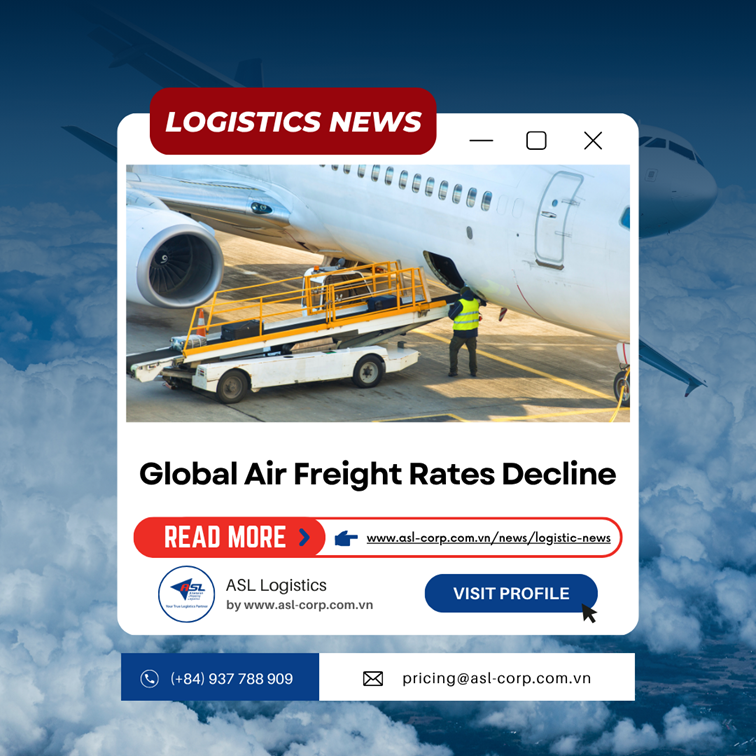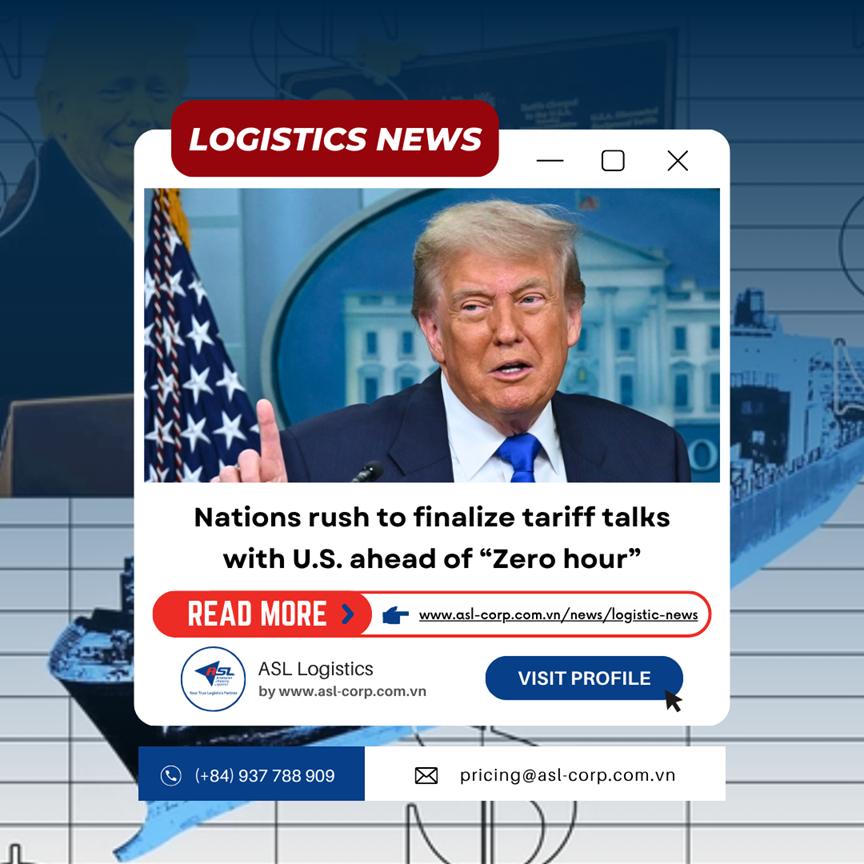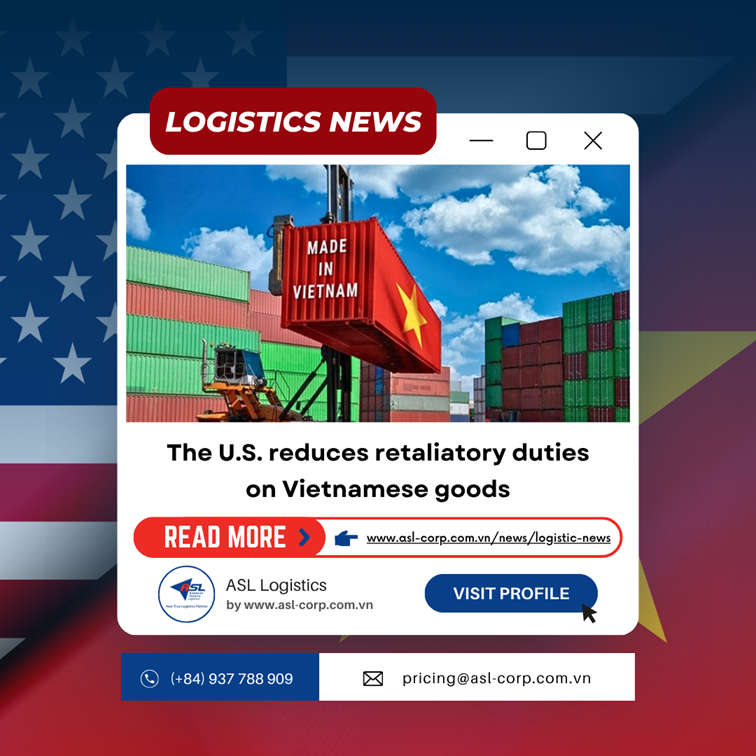Logistic News
SOLUTIONS TO HELP BUSINESSES COPE WITH THE DRAMATIC INCREASE OF SEA FREIGHT (PART 2)
03 June 2024
According to Mr. Pham Quang Anh, Director of Mercantile Exchange of Vietnam (MXV), the story of the Red Sea may be just the beginning of a period of a series of instability of the maritime transport route.
Part 1 noted the unstable situation of the maritime transport, especially the rising shipping rates due to the Red Sea tension, causing many businesses to struggle to keep orders and diversify the supply, limiting the impact on the supply chain.
According to Mr. Pham Quang Anh, Director of Mercantile Exchange of Vietnam (MXV), the story of the Red Sea may be just the beginning of a period of instability for maritime transport in the context of tensions are taking place in many parts of the world. Therefore, anticipating conflict hot spots and finding ways to resolve and "avoid" hot spots is very important for export businesses.

The Red Sea and vital routes for global trade
Analyzing this issue more clearly, Mr. Pham Quang Anh said: "The avoidance here means we must diversify our partner markets. If we focus too much on a certain market, we will encounter the situation of interupted transportation, Vietnam's goods will be backlogged and greatly affect export value. Second, there must always be two transportation options, one for backup when the main route is affected. In some cases, longer routes have cheaper costs and faster transit due to no interruptions."
Meanwhile, Mr. Le Duy Hiep - Chairman of the Vietnam Logistics Service Business Association said that businesses must save money at each step to reduce costs: "It is recommended that transportation businesses try to reduce costs in other stages. Because there are many steps in the logistics supply chain from port, loading, and unloading, try to reduce those costs as much as possible. What's more, when negotiating with foreign shipping companies, it is necessary to proactively negotiate the nature of the shipping rates increase. There are cases where shipping companies take advantage of the situation to increase freight rates without reason, consequently, small and medium-sized businesses with no voice have to accept it. Enterprises also needs to update the Red Sea situation constantly."
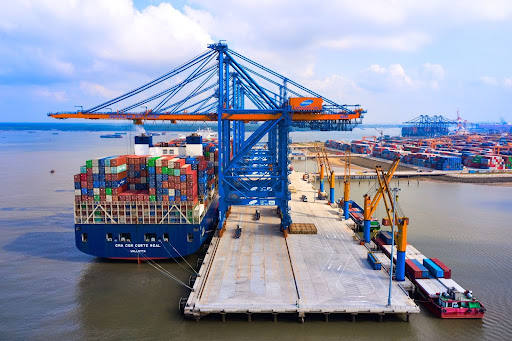
Illustrated photo
Although we agree and share the objective impacts of longer transit times, more fuel consumption, increased costs and surcharges, how can we avoid pushing up prices and difficult to control? - is the issue raised by Mr. Dau Anh Tuan - Deputy General Secretary of the Confederation of Commerce and Industry (VCCI):
"It is true that prices are increased, but the problem is whether it is fair, open, transparent or not? It is probably businesses and shipping lines, entities related to businesses in the field of logistics necessarily solve this problem. And the role of the State here is also very important because the relationship here is clearly that there are weaker businesses and weaker industries. Therefore, like any industry, the State needs to intervene to protect weaker businesses in this chain."
Noting and appreciating the solutions given by ministries, agencies and businesses, Mr. Tran Thanh Hai - Deputy Director of the Import-Export Department, Ministry of Industry and Trade requested shipping lines in the current context to maintain the route, quickly return empty containers, comply with regulations on freight rates and surcharges; At the same time, research and consider multimodal transport methods combined with rail, sea and air...
Regarding business and industry associations, Mr. Tran Thanh Hai said: "For the Logistics Business Association and ship owners as well as associations in the logistics field, we also recommend continuing to closely monitor the situation, coordinating with businesses, shipping lines as well as Vietnamese state management agencies to help businesses have the greatest advantages in ensuring import and export activities. International trade; and industry associations also have recommendations for our members to closely monitor the incident and proactively develop scenarios and response plans because without the Red Sea incident, there may be another event that has the same effect."
For businesses facing the increase in shipping rates due to tensions in the Red Sea, Mr. Pham Quang Anh also emphasized the purchase of cargo insurance: "Buying cargo insurance is also mandatory for high-value export shipments. These measures will partly help Vietnamese export businesses feel more secure against unpredictable fluctuations."
According to experts, in the immediate future, to cope with the situation, businesses need to proactively negotiate with partners to extend delivery/receipt time. Along with that, you also need to consider buying insurance to avoid the risk of delays in delivering/receiving goods.
But in the long term, there must be synchronous development of the logistics industry with proactive actions of having cold storage systems, cold container supply systems... Only then can competitiveness in the supply chain be improved.
Souce: VOA

Head Office
ASL Hồ Chí Minh
Số 31/34A Ung Văn Khiêm, Phường Thạnh Mỹ Tây, TP. Hồ Chí Minh, Việt Nam
 Công Ty Cổ Phần Giao Nhận Vận Tải Mỹ Á
Công Ty Cổ Phần Giao Nhận Vận Tải Mỹ Á
 (+84)28 3512 9759
(+84)28 3512 9759
 (+84)28 3512 9758
(+84)28 3512 9758
 pricing@asl-corp.com.vn
pricing@asl-corp.com.vn
 mdirector@asl-corp.com.vn
mdirector@asl-corp.com.vn
 www.asl-corp.com.vn
www.asl-corp.com.vn
LOGISTICS SERVICES










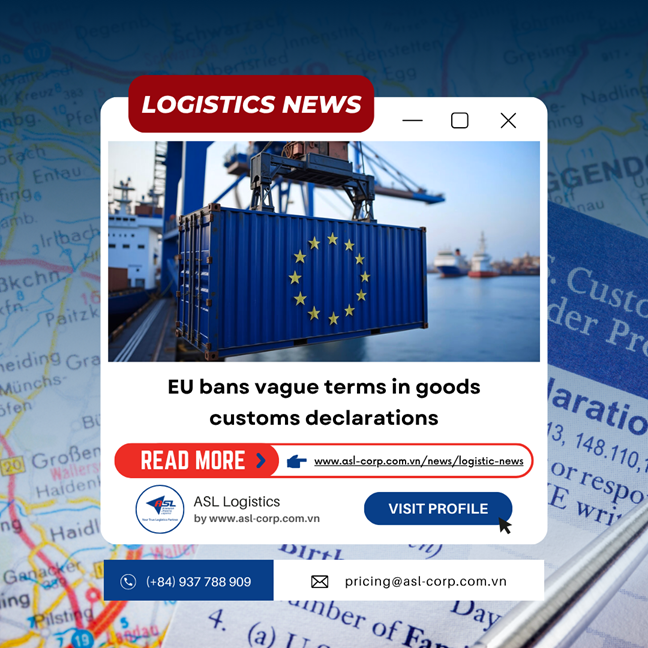
.png)
.png)

.png)

